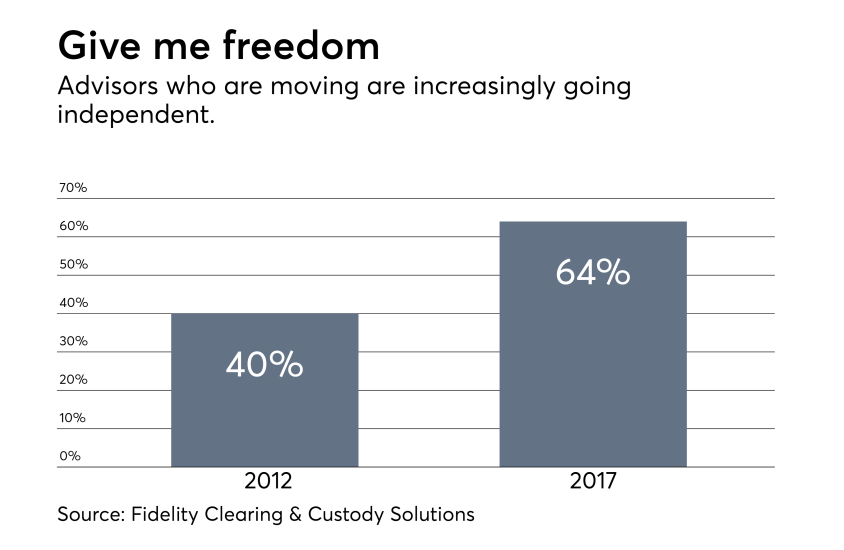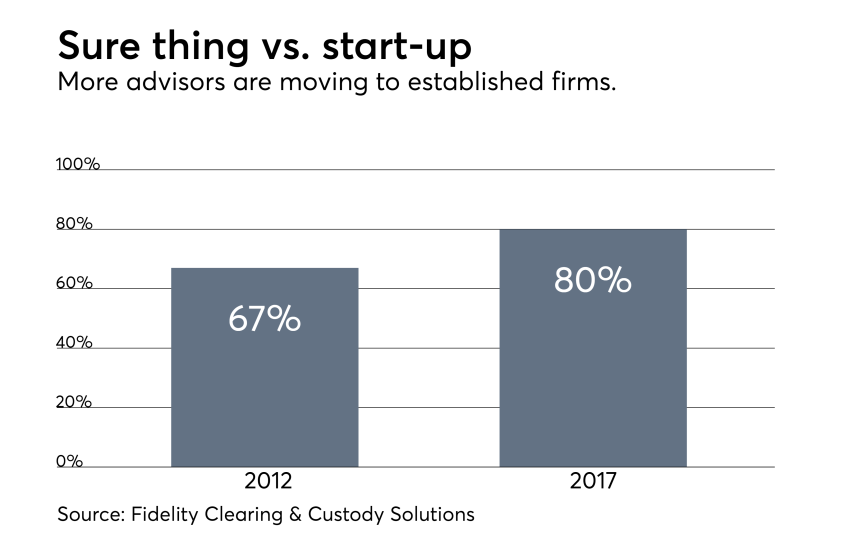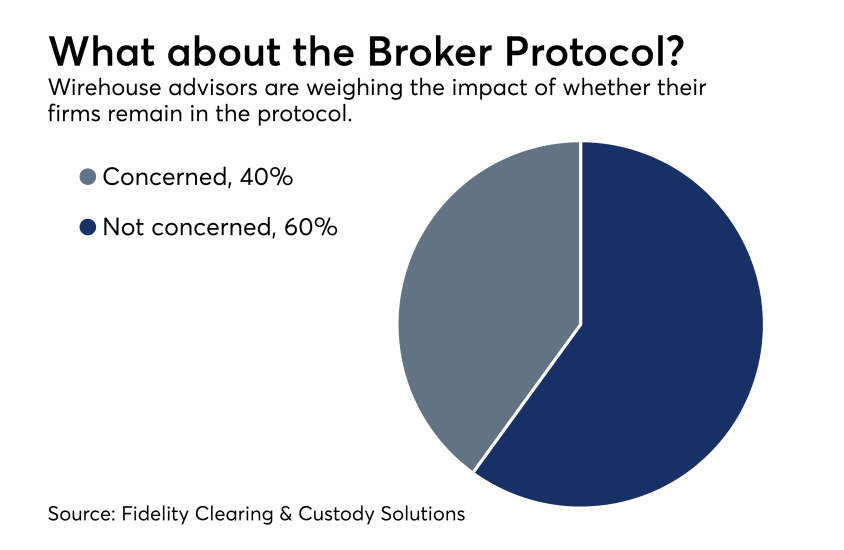
<br>
Nearly a quarter have switched firms in the past five years and more than half have considered making a move, according to a new Fidelity study, "What's Driving Advisors to Move in the New Market Landscape?"
Most of the movement is toward RIAs and IBDs, the study found, driven by what it describes as "a desire for growth opportunities, greater autonomy and ability to deliver a higher level of client service."
Money, of course, is also a motivating factor.
"A better level of service means a happier client, and a happier client means a better [financial] outcome for the advisor," says Charlie Phelan, vice president, practice management and consulting for Fidelity.
Teams switching firms together has been a major trend over the last five years — almost half of the advisors who moved were part of a team. As a result, the median assets moving to a new firm with a financial advisor or a team is now around $75 million, more than double the amount that transitioned in 2012.
Recruiters who want to persuade advisors to move should have different targeted messages, says Phelan. "For some it's the emotional benefits of greater control," he says. "For others it's increased earnings potential and an opportunity to grow."
Firms need to offer detailed transition process and integrated technology platforms, according to the study, while companies who want advisors to stay must demonstrate "a really good environment and culture," Phelan says.
Interestingly, top executives in wealth management, asset management and fintech firms are staying put, according to a
But expect continued movement from advisors, says Amit Dogra, president of Third Seven Capital Advisors in New York.
"It doesn't matter if you're at an RIA, an IBD or a wirehouse," Dogra says. "Advisors want more and expect more. They want a commitment that they won't be replaced by technology, that they can be excited by investing again and that they'll have value added to their business no matter where they are in their life cycle."

Entrenched advisors say they like their current jobs and don't want to market themselves in a new job and develop new business. They also are happy with their work/life balance and worry they will have to work more hours if they move.













